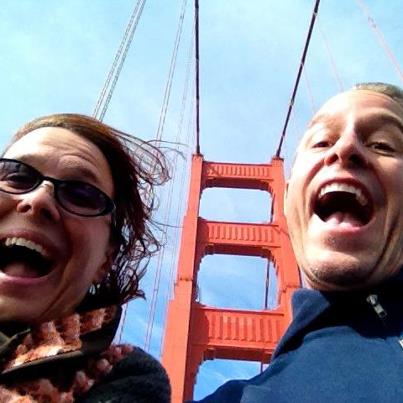Late in the summer, I finally made it through an aging copy of Psychology Today in a magazine stack next to the bed.
I kept that magazine since 2010 because its cover promoted an article on making your own luck, though I can’t begin to explain why it took me two years to read a well-written piece on a topic I care about.
The article, which emphasizes the connection between openness and luck, leads with this anecdote about a house-hunting couple:
Mary McGuire-Wien and her husband, Charles Wildbank, had been searching for a new home on Long Island for more than a year, but every place they’d seen was either unsuitable or unaffordable. After one long Sunday of unsuccessful house-hunting with their agent, the couple was anxious to get back home, but got stuck at a traffic light right next to an old barn that was under renovation. “A guy in a hard hat looked over at us and said, ‘Are you looking for a house?'” says Mary.
Though the barn didn’t look like a house—it didn’t even have any visible windows—Mary and her husband got out to take a look. The building turned out to be loftlike, with beautiful historical details (including back-facing windows). “A normal family probably wouldn’t want it,” says Mary. “But it was absolutely perfect for us because we needed a space where I could have a yoga retreat, and where Charles could paint.” They agreed to buy the place from the construction worker, who turned out to be the barn’s owner.
Mary and Charles could be considered fortunate—what are the chances that the owner would stop them when they were most in need of a home? And yet, they were the ones who agreed to investigate an unlikely prospect. Their open-mindedness turned a strange moment into a lucky break.
People who spot and seize opportunity are different. They are more open to life’s forking paths, so they see possibilities others miss. And if things don’t work out the way they’d hoped, they brush off disappointment and launch themselves headlong toward the next fortunate circumstance. As a result, they’re happier and more likely to achieve their goals.
This article moved me — I re-read it, I read pieces to John, I thought a lot about its five pieces of advice:
-
See Serendipity Everywhere
-
Prime Yourself for Chance
-
Go Ahead, Slack Off
-
Say Yes
-
Embrace Failure
If you want the details of Rebecca Webber’s article, check it out on Psychology Today.
Then, in perfect, there-are-no-coincidences timing, we heard from a friend of a friend about the possibility of swapping our Brooklyn apartment for his place in San Francisco for September.

My immediate reaction: no way. It’s at the corner of Haight and Ashbury, a magnet for every lost soul who straggles into San Francisco chasing the hippie reputation, and the offer was not for a whole apartment but for one bedroom in a five-bedroom apartment populated mostly by programmers half our age.
I’m an only child. I never had to share a bedroom growing up, and I even had a solo apartment my senior year of college. Moving in with strangers, especially young guys, gave me images of living in a loud, smelly frat house where we’d have no privacy and never get any sleep.
But the timing of this proposal right after I’d finally read this powerful article about luck felt like maybe this was my real-life test to see if I’d gotten it.
Could I be flexible enough about my expectations to consider a neighborhood I was averse to? Could I say yes to living with strangers when my instinct was to say no?
We’d spent three months of 2011 in New Orleans and I felt compelled to try a similar sojourn in San Francisco, but I pictured a quiet one-bedroom place in an elegant Victorian house. The option on the table would allow me to experience the left coast, but not in the way I’d expected.
I’m so, so glad we said yes. Our roomies have been a highlight, not a detriment, to our trip — they’re smart, interesting, considerate people who’ve made us feel totally at home, including us in meals, discussing work and life and generally showing me how wrong my initial negative expectations were.
Consider this my open thank you note to Psychology Today for helping us luck into this.
******
Related posts on saying yes, being open to possibility and being lucky:
- Blogversation 2012: When did life hand you something terrible that turned out to be great?
- Blogversation 2012: What did you learn in 2011 that you’re carrying forward?
- Reblog from DailyWorth: Saying ‘Yes’ Pays Off
- Saying yes to new things expands your life
- I didn’t think I’d like New Orleans Jazz Fest
- George Clooney on self confidence and being willing to fail
- Are you willing to be really, really lucky?
- Guidance to help you get lucky
- Feel the fear and do it anyway


